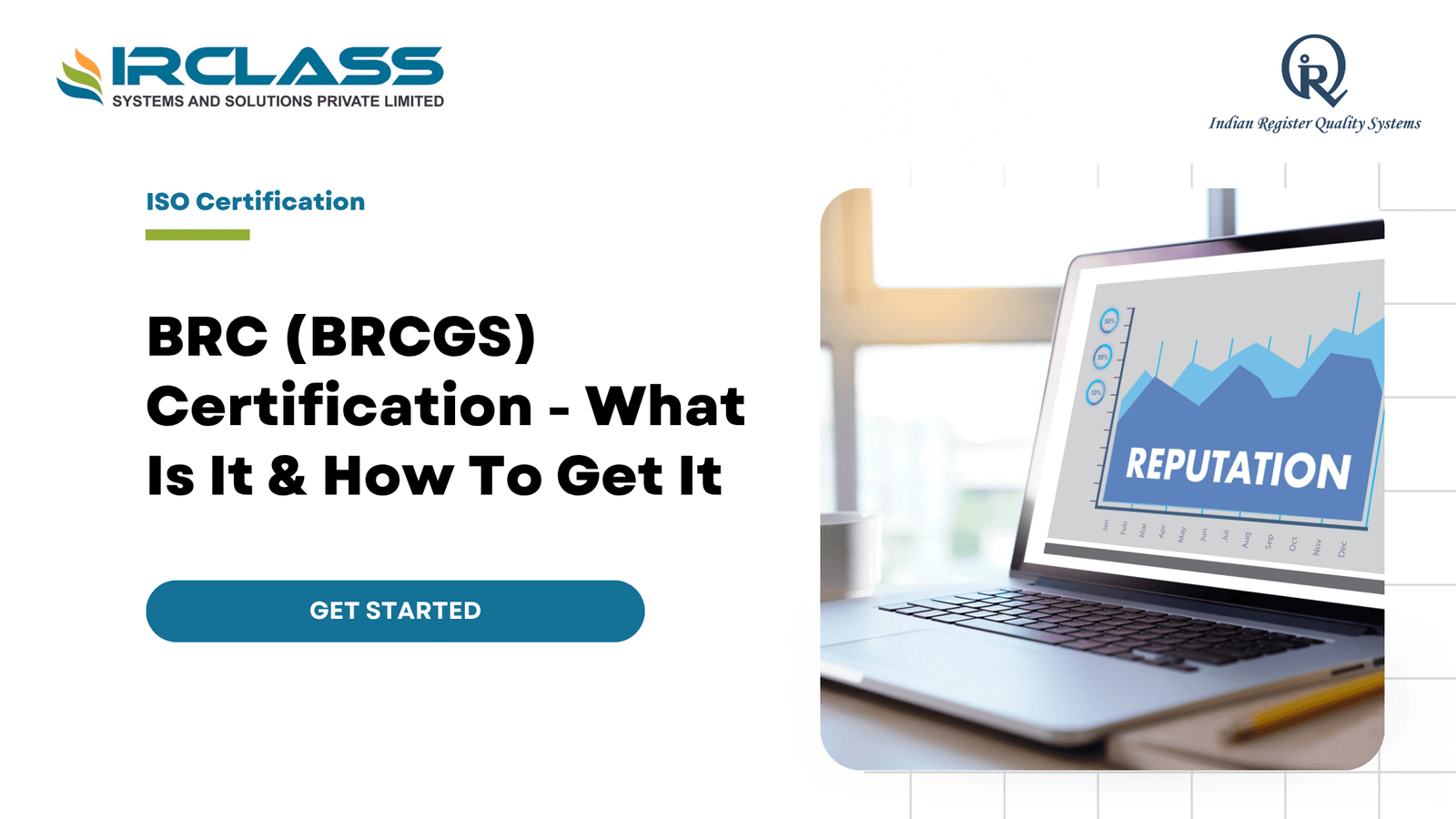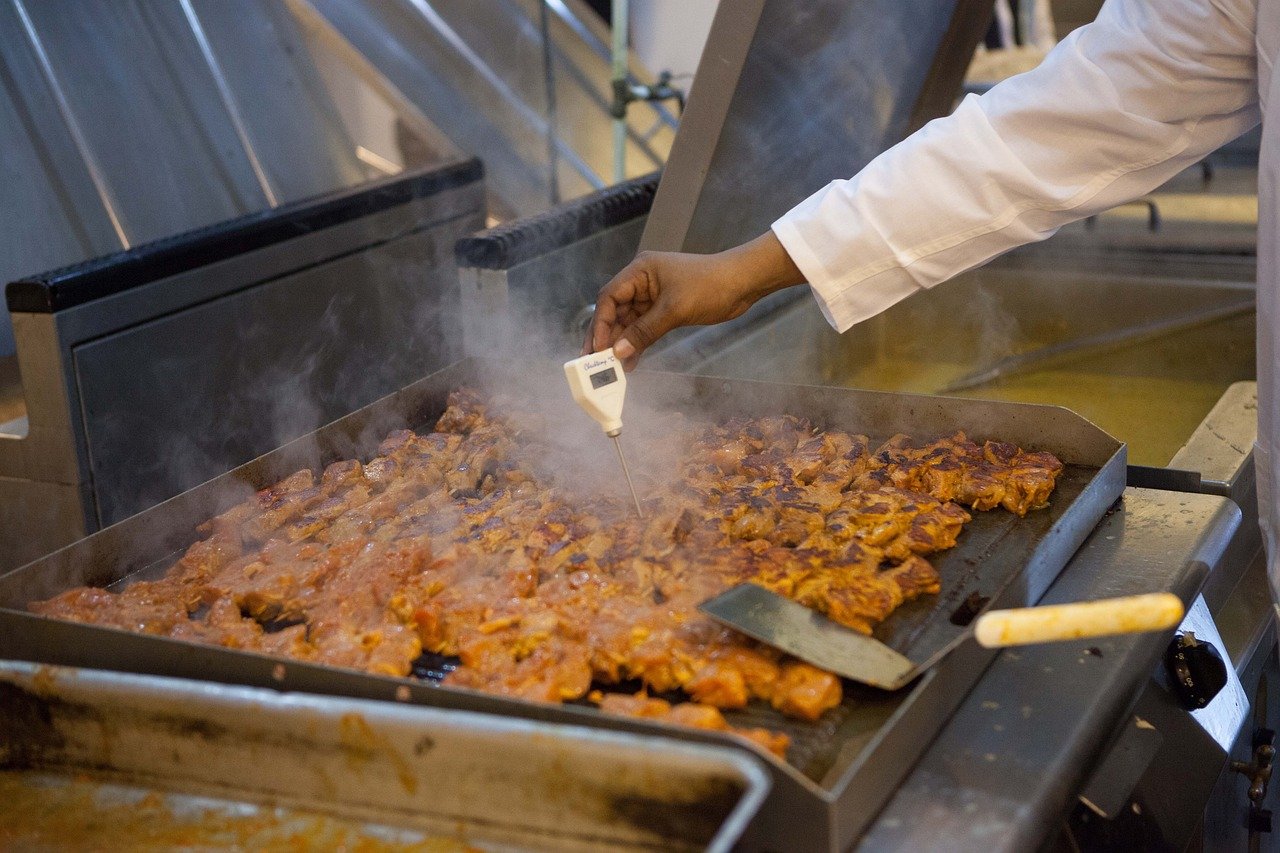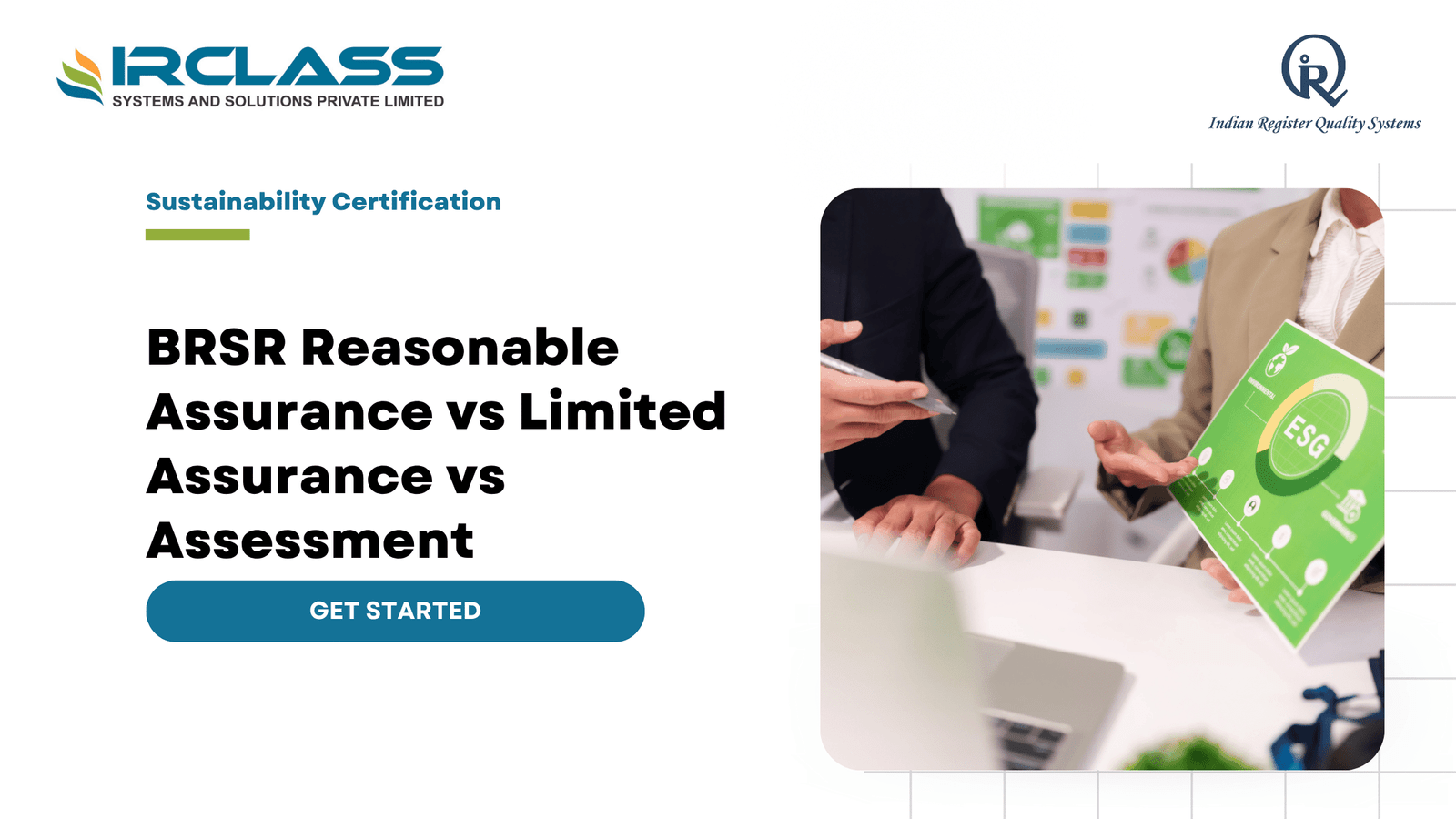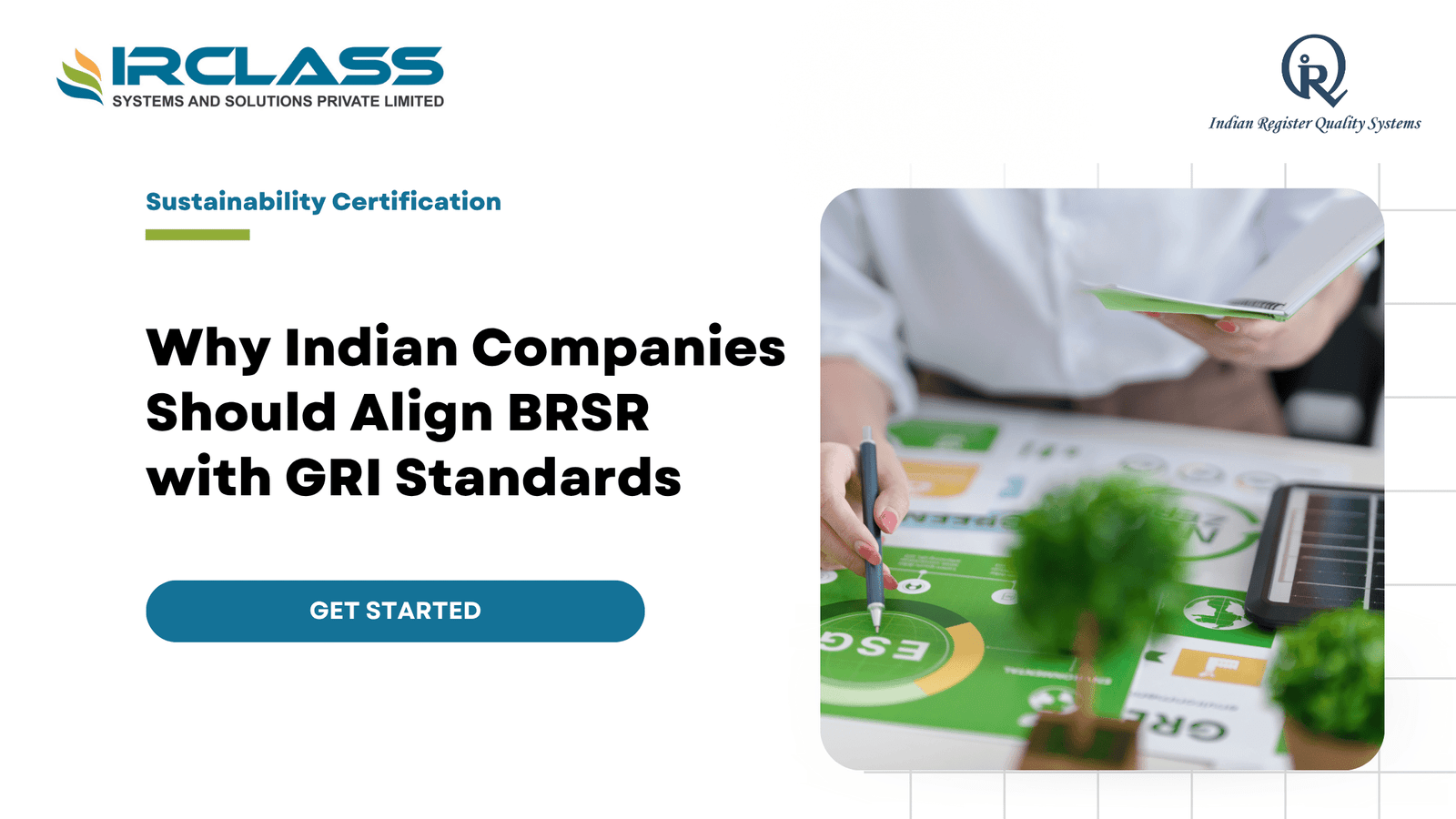Tag: BRCGS Global Standard for Food Safety

How BRCGS Certification Can Boost Your Brand’s Global Reputation
Brands want to grow. They want to expand into global markets. But they also need to stay safe, consistent, and trusted. One mistake in the supply chain can damage years of credibility. That’s why companies are going for BRCGS certification. It helps them prove they follow global safety and quality standards. It builds trust. It shows commitment. And most importantly, it gives them a clear edge over competitors. BRCGS stands for Brand Reputation through Compliance Global Standards. It sets benchmarks in food safety, packaging, distribution, and consumer product handling. The goal is simple — reduce risk, improve control, and build a brand that customers and partners can rely on. Brands want trust When a brand is BRCGS certified, it means their processes are verified by global auditors. This tells buyers and customers that the company is serious about safety, legality, and quality. It reduces doubts. It reduces questions. It builds confidence right away. Retailers want to work with suppliers they can trust. Distributors want fewer issues. Consumers want safe, reliable products. BRCGS helps deliver all three. Global buyers prefer certified suppliers Most global retailers already have BRCGS in their supplier checklist. If you don’t have it, you may not even get considered. With BRCGS, your brand gets access to new markets. You’re seen as reliable. You’re seen as ready. Without certification, the brand has to work harder to prove its processes. With certification, the brand already meets expectations. This makes a difference in sales meetings, supply chain partnerships, and global distribution deals. Certification builds a competitive advantage Companies with BRCGS certification move faster. They close deals faster. They get approvals faster. That’s because the standard already confirms what others have to explain — their operations meet international norms. In competitive markets, this can be the difference between winning a contract or losing one. It also helps in tenders, audits, and partnerships. Certification makes your brand easier to trust. And being easy to trust is a serious advantage. Certification reduces risk A big risk for global brands is product recalls. Recalls are expensive. They damage the brand. They lose customers. BRCGS reduces this risk. The standard forces companies to track and monitor every step — raw materials, suppliers, production, packaging, and storage. It introduces checks. It finds gaps early. It catches problems before they reach the market. That’s not just about compliance. That’s about brand protection. It brings consistency to the supply chain BRCGS certification doesn’t just improve what happens inside your factory. It strengthens the full supply chain. It forces consistency — in sourcing, in quality checks, and in how information is recorded. This lowers the chances of breakdowns. It builds resilience. It also makes the company easier to scale. You don’t need to rely on a few key people. The system is in place. Companies save time and cost Compliance takes effort. But unstructured compliance takes more. BRCGS requires companies to write things down, run internal audits, follow documented procedures, and train people properly. This builds systems that work. Over time, the company sees better workflow, fewer mistakes, and less rework. This saves cost. It saves time. It also reduces firefighting. Instead of reacting to problems, companies prevent them. It aligns leadership with quality BRCGS doesn’t just focus on technical staff. It requires top management to be involved. Leadership has to take responsibility for food safety and quality systems. This drives cultural change. When leadership owns the system, the rest of the company follows. You get better audits. You get better responses. And you get a company that’s aligned across teams. It shows proof of best practices Many companies say they follow best practices. But only some have proof. BRCGS certification is that proof. It covers: These aren’t optional. They’re part of the audit. And once passed, the brand has a verified certificate to show for it. This builds long-term credibility in the market. It improves transparency More brands are being asked to show where their products come from. How they are made. What checks are done. BRCGS helps answer these questions with facts and documentation. Companies that are certified can show traceability. They can explain processes. They can prove safety measures. This makes them more transparent — and harder to question. Transparency builds trust. And trust builds growth. It helps in ESG and sustainability reporting BRCGS certification is also a means of companies that focus on ESG. The standard offers traceability, waste management, energy monitoring and food safety culture. This enables companies to reach their ESG goals. It also backs up sustainability claims with real audit records. This simplifies investor reports, stakeholder updates and customer communications and makes them more credible. It prepares the company for crisis situations Every brand faces risks. But certified brands are better prepared. BRCGS requires risk assessments, documented recovery plans, crisis response protocols, and regular testing. This gives brands tools to respond fast, stay compliant, and protect their name if something goes wrong. In a global market, this matters. Mistakes go public fast. BRCGS helps you act faster and contain damage. How IRQS Plays an Important Role IRQS works with companies across India and other markets to achieve BRCGS certification. They help brands prepare, correct gaps, train teams, and pass audits. Some of the common projects delivered by IRQS include: Some of the industries that have been assisted by IRQS include: Having 5000+ clients all over the world, 42 offices, and decades of audit experience, IRQS assists companies in realizing the advantages of BRCGS certification in a fast and accurate manner. In conclusion Global markets demand consistency. They demand proof. And they reward companies that meet expectations without needing extra explanation. BRCGS certification gives brands that advantage. It proves that you take quality seriously. It opens doors to new customers, global retailers, and low-risk partnerships. It reduces downtime, improves safety, and gives the brand a better way to scale. IRQS helps companies achieve this. Through real projects, certified auditors, and proven systems, they help brands go from risk to readiness — and

BRCGS Certification: Improve Food Safety Culture
Food safety culture is a modern term for food safety. It is challenging to define it for organizations with their respective requirements of food safety culture. Dr. Joanne Taylor developed the modern term food safety culture in the Food Safety Culture Excellence Model. Dr. Taylor defined food safety culture as the “prevailing attitudes, values, and practices related to food safety that are taught, directly and indirectly, to new employees”. Global Food Safety Initiative (GFSI) and BRCGS have similar definitions. The GFSI outlines food safety culture as “shared values, beliefs and norms that affect mindset and behavior toward food safety in, across and throughout an organization.” On the other hand, BRCGS delivers a definition of the culture as – “The attitudes, values, and/or beliefs which are prevalent at the site, relating to the importance of product safety, and the confidence in the product safety systems, processes and procedures used by the site.” One can notice the similarities among these definitions. But food safety culture is more than these definitions. It is developed with multiple aspects that are all equally important. Food safety culture is a culture of a business or workplace focusing on all vital aspects of food safety. It demonstrates the ideal standards of safety for all members of staff. Essentiality of food safety Anyone related to the food-based business can recognize the essentiality of food safety and its role within the organization. It is convenient to display and remind the staff to uphold the ideal practices and procedures with the updated food safety culture. It is a straightforward task to monitor compliance with the due diligence checklists. BRCGS Food Safety Issue 9 has elaborated on the concept of food safety culture. It is an indispensable choice for senior management to exhibit a commitment level. It also promotes continuous improvement of food safety culture within an organization during a professional certification or internal audit. Companies with an enhanced opportunity for business can market their food safety culture and get it assessed, during the on-site food safety audit. Boosting the practices of a food safety culture in an organization or business can augment the scope of training on food safety practices for staff. In the long run, it generates benefits such as optimal compliance, zero legal issues and premium safety standards throughout the business, and an engaged workforce. Understanding from the organization’s perspective A well-defined food safety culture will assist the organization score high. One can always be prepared for an unplanned and unannounced audit with a well-defined food safety culture. The significance of food safety leads to fewer costly recalls. In the long run, it impacts the profit and saves the business from potentially brand-damaging food safety accidents. One can avoid loopholes and unprofessional behavior that may result in unsafe food. One can save resources to minimize the expense and manage better. From product recalls, food wastage, legal fees, and damaged reputation – find suitable solutions with the food safety culture. All these are incentives for an organization to implement an excellent food safety culture. Apart from these, food safety culture helps employees feel engaged with their work. Better awareness and knowledge act as bonus pointers for them to act in accordance with the organization’s values and principles. It helps in aligning the staff and makes them better workers and ambassadors for the business in the long run. Food safety culture enhances staff engagement and retention. A company with a mature food safety culture, exhibits a uniform policy about everything in the business, including GMP or Good Manufacturing Practices, leading to business success. About BRCGS – Get an overall idea. BRCGS stands for British Retail Consortium Global Standards. BRCGS was established in 1996 and it was in this year that BRC published the first standard, BRC Food Technical Standard. BRCGS is led by the LGC group, a global life sciences measurement and testing company. BRCGS is a leading global brand essential to strengthen a business. The objective of BRCGS is to promote food safety, for food and non-food industrial categories. The purpose of BRCGS is to implement ideas and proven practices, assure quality, and develop confidence in the supply chain. BRCGS was created by retailers and incorporated by businesses across industries. Simply put, the BRCGS norms ensure product safety and quality and simultaneously safeguard the business from facing any charges by the enforcement authorities. Features that improve the food safety The BRCGS is critical for – Businesses following standard and reliable manufacturing practices can assure their vendors and customers about the safety of their manufactured products. BRCGS certification exhibits that the products are safe, legal, and of premium quality. Here are some stats to prove the point – BRCGS is a benchmark practice in the food industry across the globe. A lot depends on its acceptance at the global level. BRCGS empowers organizations and brands in the food industry to expand across the globe meeting the ideal quality standards. BRCGS offers a structured framework helping you ensure and maintain product safety, integrity, legal compliance, and quality. It streamlines the management of operational activities, including food ingredient manufacturing, processing, packaging materials, etc. Summing the benefits Comply with the food safety norms. With the ever-evolving significance of food safety and the expansion of food and packaging industries at a global level, food safety is an indispensable topic. It is a concerning issue in the current times. Food safety culture is also vital for the ones venturing into the food supply chain, manufacturing, and packaging industry. Ensure customer safety and protect brand reputation with a prudent choice. Get the BRCGS certification with the apt steps.
Search
Useful Links
Recent Posts

BRSR Reasonable Assurance vs Limited Assurance vs Assessment

GRI Reporting and SEBI’s BRSR: Building Credible ESG Reports for Indian Companies



